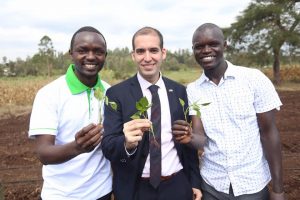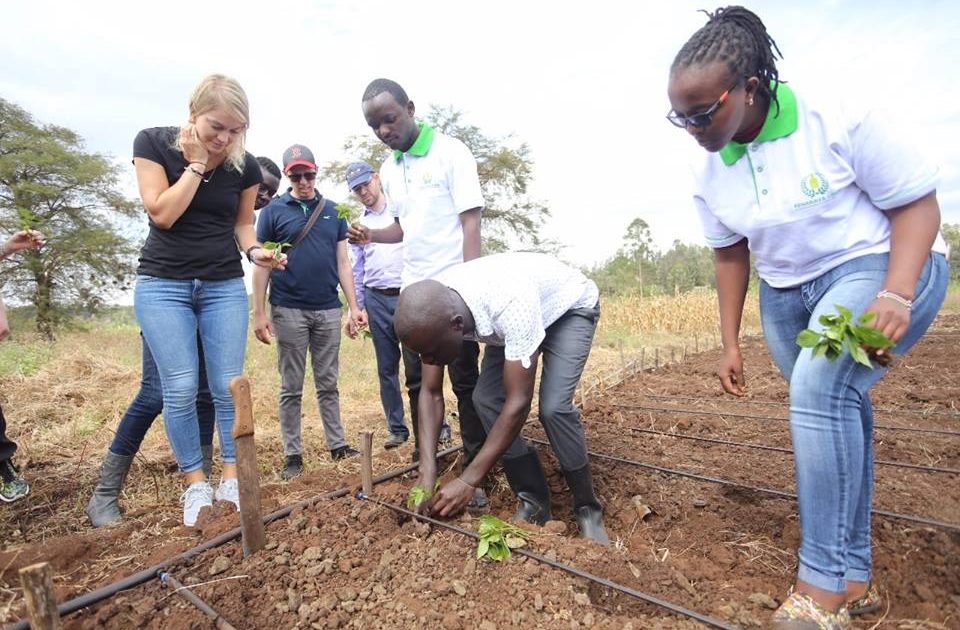Peter Kimani, 25, from Kiambu County, was one of the 101 students selected to participate in a trip to the Arava International Centre for Agriculture Training (AICAT) in Sapir, Israel, in 2016.
This comes after former President Uhuru Kenyatta and Israeli Prime Minister Benjamin Netanyahu signed an agreement in early 2016 dubbed the Jerusalem Declaration, or the Declaration on Collaboration in Water and Irrigation, that included a programme where recent graduates from different Kenyan universities would participate in an 11-month practical training course in the foreign country.
“I was delighted to receive an invitation for an interview from AICAT Kenya after applying for the programme. I performed well during the interview and was successfully selected,” says Kimani, a Bachelor of Science degree holder in Land Resources Planning and Management from Jomo Kenyatta University of Science and Technology (JKUAT).

Kimani and the other selected students were given air tickets on a loan basis, which they were to repay during or after the internship.
The internship included practical training, and the students were required to participate in farm production activities.
“We would only attend classes on Mondays, and the rest of the days were spent in the fields with experts who taught us about crop production, from planting to harvesting. We were paid 30 shekels (about Sh900) per hour for working 10 hours a day in the field,” he explained.
Upon his return to Kenya, Kimani had accumulated Sh500,000, which he invested in his new venture. Teaming up with a friend, they set up two 8×30-metre greenhouses and a net house to cultivate tomatoes and cucumbers.
On their farm in Thika, they chose to plant the high-yielding Tylka F1 tomato variety and the super marketer cucumber variety.
Kimani says that with 1400 tomato plants, he earns approximately Sh1500 per plant.
As for the 1,000 cucumber plants, they yield 14–17 kilogrammes per plant, which he sells at prices ranging between Sh45-Sh60 per kilo at Nairobi’s City Park Market.
During his first season, he earned approximately Sh1.7 million from tomatoes and Sh750,000 from cucumbers, both of which took three months to reach maturity.
Kimani and his partner have now expanded their production, and on top of their usual crops, they have since ventured into vegetable farming, now cultivating kale, broccoli, capsicum, and carrots.
The two partners also serve as horticulture consultants, offering tours and classes on their Thika farm, where they attract many visitors and learners who come on benchmarking tours, at a cost of Sh500 per person and Sh5,000 for a group of eight.
Kimani’s future aspiration is to delve into the value addition of tomatoes to address the issue of wastage that many farmers in the country experience during times of crop surplus in the market.
However, despite having thoroughly considered this idea, he is unable to implement it at the moment due to a lack of sufficient resources.
Meanwhile, Kimani still remains determined to pursue farming as his lifelong career, even as many youths in the country continue to face challenges of unemployment, with the majority of them viewing farming as a less favourable venture.
By Hellen Lunalo





